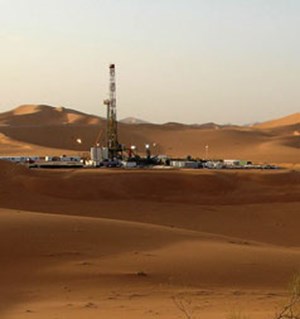Executive Viewpoint
After spending 36 years in the petroleum industry, I’ve learned much about the intricacies of international petroleum negotiations. I’ve also learned that, while there are many professions in the oil and gas industry, the role of the international petroleum negotiator is not always widely-recognized. I find this to be ironic, given that international petroleum negotiators are often involved in a broad range of contract negotiations and transactional processes during the life of an asset—from asset acquisition, to the building of infrastructure, to hydrocarbon sales, to name only a few of the many steps in this process.
Negotiating with a host government, or another company, to participate in E&P of hydrocarbons is a particularly critical role that the international negotiator takes on. Because a significant amount of groundwork must be laid before hydrocarbon exploration and extraction take place, the negotiator is at the forefront of building the essential foundation upon which a successful deal can be struck.
Targeting the opportunity. Before a petroleum extraction agreement between a company and host government is proposed, an explorationist performs a regional study of the proposed area. The explorationist looks for the presence of several criteria, to determine if the area is suitable for oil extraction. These criteria include source rock capable of generating hydrocarbons; permeable reservoir rock; a hydrocarbon trapping mechanism; evidence of hydrocarbon migration; and appropriate temperatures for hydrocarbon generation in the oil or gas window. The explorationist identifies the area that is conducive to exploration and works with the international petroleum negotiator to confirm availability of the license(s) to the area, as well as the host government’s or license owner’s willingness to negotiate an agreement.
Intricacies of the negotiation phase. After license availability is confirmed, the negotiations team is formed, typically comprised of the negotiator, engineers, explorationists, lawyers, accountants, and other functionaries germane to the negotiation. Internal discussions to identify, document and define terms and provisions required during the negotiation are conducted. These discussions include whether to pursue this opportunity relative to the current portfolio, as well as assessing above-ground risks that need to be addressed and/or mitigated.

When the company chooses to move forward with the proposal, the international petroleum negotiator takes the lead in bringing the deal to fruition. The negotiator may have an initial meeting, phone call, or email exchange with the other party, to determine if a deal is feasible. Soon thereafter, one party will provide a contract template outlining the fundamental needs and structure of the terms and conditions. Sometimes the host government is ready with its own terms. In a company-to-company negotiation, often the company already established in the area of interest provides the initial draft. Upon receiving the contract, they can choose whether to agree to the outlined terms or to identify issues of clarification and/or exceptions, and thus the negotiation begins. Less-controversial details can be resolved via email drafts and conference calls. Later, the parties involved meet face-to-face, so that more critical terms can be agreed upon. Sometimes, mutual agreement happens in a few meetings, although complex deals may take a few months to over a year.
The value of laying the groundwork for oil extraction. The goal in any effective negotiation is to create an economically beneficial deal for both parties, which is why it is important for an international negotiator to master the art of balance between the needs of each side, to effectively resolve any differences that arise, whether they be commercial, operational or legal. In addition, before exploration on the newly acquired license can begin, there may be other contracts to be negotiated, and such contracts often include those which the Association of International Petroleum Negotiators provides complimentary to its members in the form of “model contracts”—for example, a farm-out agreement, joint operating agreement, or service contract.
Indeed, the foundation that is laid in the exploration phase of petroleum extraction requires an exponential amount of groundwork from the international petroleum negotiator. And if a project is eventually successful via commercial discovery, more contracts will be required to support delineation, development and production activity for the coming decades. Although the groundwork that serves as the foundation for a successful long-term operation is often overlooked, the negotiator—who must possess a basic understanding of exploration, engineering, accounting, law, and environmental considerations—is nevertheless critical to ensuring a balanced agreement in support of the upstream international oil and gas industry. ![]()
- Coiled tubing drilling’s role in the energy transition (March 2024)
- Advancing offshore decarbonization through electrification of FPSOs (March 2024)
- The reserves replacement dilemma: Can intelligent digital technologies fill the supply gap? (March 2024)
- What's new in production (February 2024)
- Subsea technology- Corrosion monitoring: From failure to success (February 2024)
- Digital tool kit enhances real-time decision-making to improve drilling efficiency and performance (February 2024)
- Applying ultra-deep LWD resistivity technology successfully in a SAGD operation (May 2019)
- Adoption of wireless intelligent completions advances (May 2019)
- Majors double down as takeaway crunch eases (April 2019)
- What’s new in well logging and formation evaluation (April 2019)
- Qualification of a 20,000-psi subsea BOP: A collaborative approach (February 2019)
- ConocoPhillips’ Greg Leveille sees rapid trajectory of technical advancement continuing (February 2019)


